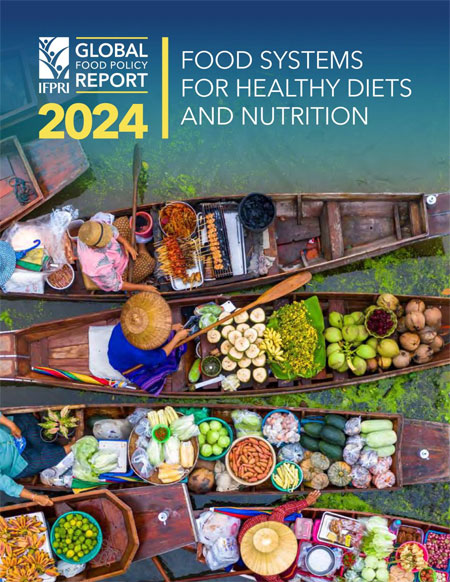The International Food Policy Research Institute (IFPRI) has unveiled its 2024 Global Food Policy Report (GFPR) with a South Asia Regional launch in Kathmandu, Nepal today.
The two-day event, themed ‘Food Systems for Healthy Diets,’ is organised by IFPRI’s South Asia Regional Office in collaboration with partners including the Institute for Integrated Development Studies (IIDS), the Bay of Bengal Initiative for Multi-Sectoral Technical and Economic Cooperation (BIMSTEC). The Institute of Policy Studies of Sri Lanka (IPS) is also a partner in IFPRI.
The event features presentations of the report’s key findings and recommendations, followed by panel discussions with distinguished experts and partners on various aspects of the theme.
The Global Food Policy Report, IFPRI’s flagship publication, compiles extensive evidence and policy recommendations aimed at preparing for, detecting, averting, mitigating and responding to food crises.
The regional launch of the 2024 Global Food Policy Report marks a significant step in addressing global food policy challenges and promoting sustainable, healthy diets through comprehensive and coordinated efforts.
IFPRI researchers and colleagues have reviewed various approaches to addressing demand, affordability, accessibility, and availability constraints to achieving sustainable healthy diets. The report highlights the need for interconnected actions supported by good governance.
Key areas of focus include: Supporting healthier food choices, Addressing the high costs of healthy diets, Improving food environments, Leveraging food crops for better nutrition, The role of animal-sourced foods, Governance for better diets and nutrition as well as Environmental sustainability of diets.
Snapshot of the present challenges highlighted in the report include;
- Between 691 and 783 million people faced hunger in 2022, representing over 9% of the population.
- Micronutrient deficiencies affect more than half of children under five and two-thirds of adult women.
- Overweight and obesity rates have surged globally, with 43% of adults being overweight and 16% obese, more than doubling in the past 30 years.
- An estimated 2–3 billion people, predominantly in Africa and South Asia, cannot afford a healthy diet.
- Unhealthy diets are the leading risk factor for non-communicable diseases, responsible for over 73% of global deaths.
- Food system activities contribute about one-third of global greenhouse gas emissions.
The report estimates that less than half of the global population consumes diverse diets with sufficient fruits, vegetables, and other nutritious foods. Nutrient-dense foods remain unaffordable, unavailable, or not preferred for many people. In low- and middle-income countries (LMICs), diets are increasingly incorporating ultra-processed foods (UPFs), driven by changing livelihoods, lifestyles, and the marketing of these cheaper options. Conversely, overconsumption of animal-sourced foods continues in some regions, while vulnerable populations struggle to access these nutrient-dense foods.
It also highlights environmentally sustainable diets are crucial, given that agriculture and food systems-related activities contribute around one-third of global greenhouse gas emissions and often negatively impact land quality, water use, and biodiversity. Climate change and natural resource degradation further affect food supply and nutritional content, necessitating advanced agricultural technologies and infrastructure to ensure the availability of nutritious foods.
FT

